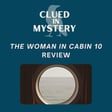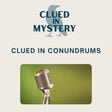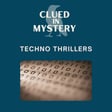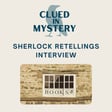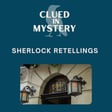
Modern Greats: Sue Grafton
Brook and Sarah start a new series exploring the life and writing of modern masters of the mystery genre. This week, they discuss Sue Grafton, author of 25 novels in the Alphabet series featuring PI Kinsey Milhone.
Titles mentioned
Keziah Dane (1967) Sue Grafton
The Lolly-Madonna War (1973) Sue Grafton
A is for Alibi (1982) Sue Grafton
E is for Evidence (1988) Sue Grafton
U is for Undertow (2009) Sue Grafton
Y is for Yesterday (2017) Sue Grafton
Writing Mysteries (2002) Sue Grafton (ed.)
Kinsey and Me: Stories (2013) Sue Grafton
The Gashleycrumb Tinies (1963) Edward Gorey
Stephanie Plum series (1994-present) Janet Evanovich
Grafton's writing journals: https://www.suegrafton.com/journal-notes.php
References
"Sue Grafton’s ‘Z Is for Zero’ Will Remain an Unwritten Mystery" Bookbub (September 10, 2020) Kristina Wright
"Sue Grafton’s Alphabet Novels to Be Adapted for Television" Hollywood Reporter (October 7, 2021) The Associated Press
For more information
Instagram: @cluedinmystery
Contact us: hello@cluedinmystery.com
Music: Signs To Nowhere by Shane Ivers – www.silvermansound.com
Sign up for our newsletter: https://cluedinmystery.com/clued-in-chronicle/
Join the Clued in Cartel: https://cluedinmystery.com/clued-in-cartel/
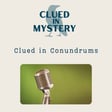
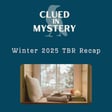
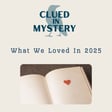
![[Re-release] Anthony Berkeley image](https://media.zencastr.com/cdn-cgi/image/width=112,quality=85/image-files/61e1c276e3ec42007857cff9/e7c778ac-a2ba-4809-9a5c-7cd39d167834.jpg)
![[Bonus] Wake Up Dead Man image](https://media.zencastr.com/cdn-cgi/image/width=112,quality=85/image-files/61e1c276e3ec42007857cff9/e276ac32-e664-464f-956c-7699bdb60aa5.jpg)
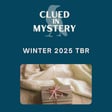
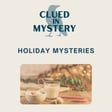
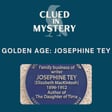
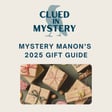
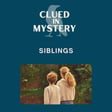

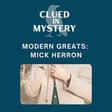
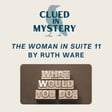
![[Bonus] Read Along: Daughter of Time image](https://media.zencastr.com/cdn-cgi/image/width=112,quality=85/image-files/61e1c276e3ec42007857cff9/b953ad72-c43e-48ca-a18a-b3c216ab90ee.jpg)
